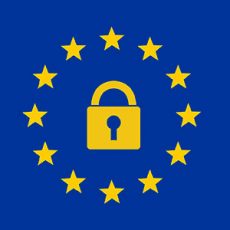
On July 1, Germany took over the current presidency of the Council of the European Union. Every six months, one of the 27 member states holds this rotating responsibility. And every six months, this presidency designs a roadmap with priorities and objectives it considers crucial to develop during the term.
The German government has decided to put the continent’s digital challenges at the heart of its objectives during its presidency. And it has done so by placing special emphasis on the need to promote the European Union’s “digital sovereignty” to defend its autonomy against the technological giants from other global powers. The goal is to move toward a digital leadership that is based on European values.
“We want to establish digital sovereignty as a leitmotiv of European digital policy and work together on responses for approaching technical developments such as artificial intelligence and quantum technologies to ensure that, in the context of fair competition, we increase our prosperity, protect our security and uphold our values”, affirmed the German government in its half-year programme.
“We want to establish digital sovereignty as a leitmotiv of European digital policy and work together on responses for approaching technical developments such as artificial intelligence and quantum technologies to ensure that, in the context of fair competition, we increase our prosperity, protect our security and uphold our values”
Berlin stresses that “This includes consolidating a monitoring system for European digital capacities” and a commitment to “a high level of public and private investment in strengthening digital capacities and a common understanding among the EU Member States regarding the definition of and path towards greater digital sovereignty”. It is a clear statement of intent on the need to put sovereignty at the heart of the European Union’s policies.
Chancellor Angela Merkel has long, and lately more openly, been defending the need for Europe to shield its digital sovereignty, in particular advocating for the EU to regain control of the data that it has left in the hands of North American tech giants. The German presidency this term sees the “establishment of a high-performance, sovereign and resilient European digital infrastructure” as essential. And Berlin is already working on it.
A European ‘cloud’
Germany and France are leading the GAIA-X project, which is looking to set up a platform to create a European cloud so that companies and governments have the possibility of storing their data on servers located in the European Union. It is a major commitment to creating an alternative to the huge dominance of the U.S. (Amazon, Microsoft and Google) and Chinese (uniquely Alibaba) big tech companies. “The COVID-19 pandemic has once again underscored the importance of a secure and trustworthy, sovereign European data infrastructure”, declared the EU’s German presidency.
We at the European Association for Digital Transition support the European Union taking a leading role in technology, and not just as a consumer, in the coming digital revolution. It would be leadership that serves to fortify digital sovereignty as the basis for defending the three traditional sovereignties: political, economic, and individual sovereignty (see our Manifesto).
This leadership will provide the EU its own business fabric capable of competing for what is currently complete dominance by U.S. and Chinese companies. The German presidency wants to put these objectives at the forefront of European digital strategy. It remains to be seen if we can move forward in this strange 2020 of epidemic and crisis. But Europe, by way of Berlin, seems determined to start down the path.




